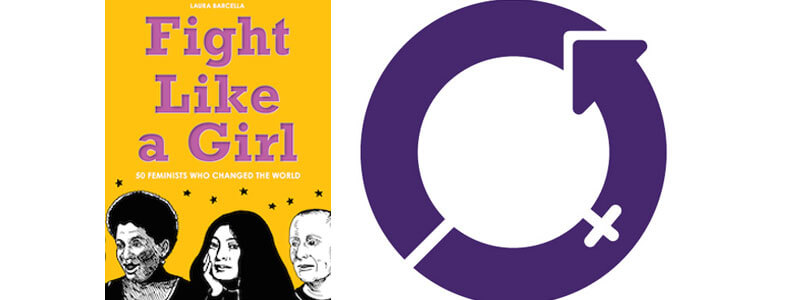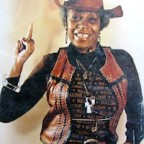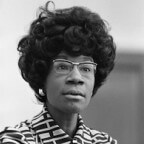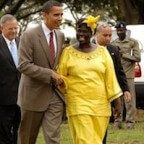

Books
Fight Like a Girl: 50 Feminists who Changed the World
Just in time for International Women’s Day, Laura Barcella’s new book is celebrating the most important change makers of our time
This article was made possible because of the generous support of DAME members. We urgently need your help to keep publishing. Will you contribute just $5 a month to support our journalism?
Today is International Women’s Day, and I’ve been reflecting on the women who helped make me and mold me into a feminist.
I believe I’ve been a feminist since before I fully understood what the word meant, since I was in the sixth grade. Me and a few of my girlfriends fervently began attending pro-choice rallies in our hometown of Washington, D.C. We’d wear purple and wave handmade signs and shriek along with the surging crush of women making crucial demands like “abortion on demand without apology.” At 12, I didn’t quite grasp all the specifics (or even the basics). But I knew enough to believe, soul deep, in women’s freedom to choose what happens to our bodies, no matter what.
The foundation of my feminism started then, and over the years it’s only grown. For years I’ve dreamt of writing a book about some of the world’s most courageous heroines, like Shirley Chisholm (the first woman to make a presidential bid), Wangari Maathai, and Florynce Kennedy (whom you’ll read about below). I wrote Fight Like a Girl as the sort of “50 feminist heroes” primer I desperately needed when I was a teenager. I didn’t want it to exist solely as a refresher course on a bunch of things you already know about people you’re already familiar with (for that reason, some big-name mainstays weren’t included, like Gloria Steinem). I wanted the book to showcase the valuable work of the lesser-known underdogs alongside the power icons.
So meet three fighters from varying backgrounds and political bents, who each used their formidable intellects, skills, and activist streaks to improve this world for women—something we should be celebrating every day.

Florynce Kennedy was an African American feminist rabble-rouser and a high-profile civil rights attorney known for her ballsy, take-no-prisoners stance in the courtroom — not to mention her trademark cowboy boots, pink sunglasses, and penchant for holding nothing back when it came to speaking her mind. (People magazine once called her “the rudest mouth on the [feminist] battleground.”) Though she hasn’t gotten much in the way of history-book recognition, Kennedy was one of the most prominent black feminists of the ’60s and ’70s.
Kennedy helped repeal New York’s restrictive abortion laws; launched a new political party, the Feminist Party; and was committed to fighting for civil rights, the Black Power Movement, and consumer advocacy (way before Ralph Nader made it his big platform). Gloria Steinem wrote about the powerhouse in Ms. magazine, “Just as there was only one Eleanor or Winston… there was only one Flo.”
Quotable
“If men could get pregnant, abortion would be a sacrament.”

In 1968 Shirley Chisholm became the first black woman to serve in the United States Congress. She was widely commended by both her political peers and her community for her relentless passion for standing up for what she believed in — causes like women’s rights, civil rights, and ending poverty. Chisholm was an active self-avowed feminist and was also the first black woman to run for president. It bugged her that many saw her run as symbolic rather than serious; she wanted to be considered “a real, viable candidate” on her own merits.
Quotable
“At present, our country needs women’s idealism and determination, perhaps more in politics than anywhere else.”

Revered for the seamless way she interwove feminist issues with environ- mental ones, Wangari Maathai was a trailblazing figure in the environ- mental rights scene — a scene that has often failed to recognize its female leaders. Born and raised in Kenya, Maathai was the first African woman to win the Nobel Peace Prize, in 2004, for “her contribution to sustain- able development, democracy and peace.” The recognition became a huge boon for Kenya. Though she was a devout Catholic and was anti-abortion, Maathai did a lot of pioneering work for women and also worked with key leaders around the world.
In her home country of Kenya, Maathai’s work was misunderstood and sometimes derided because of its subversive nature — she was seen as overstepping the traditional boundaries of African women’s roles. One of her biggest accomplishments was launching the Green Belt Movement. The organization gives stipends to Kenyan women to plant trees in their communities in an effort to help fight deforestation and preserve the environment.
Quotable
“I don’t really know why I care so much. I just have something inside me that tells me that there is a problem, and I have got to do something about it.”
Before you go, we hope you’ll consider supporting DAME’s journalism.
Today, just tiny number of corporations and billionaire owners are in control the news we watch and read. That influence shapes our culture and our understanding of the world. But at DAME, we serve as a counterbalance by doing things differently. We’re reader funded, which means our only agenda is to serve our readers. No both sides, no false equivalencies, no billionaire interests. Just our mission to publish the information and reporting that help you navigate the most complex issues we face.
But to keep publishing, stay independent and paywall free for all, we urgently need more support. During our Spring Membership drive, we hope you’ll join the community helping to build a more equitable media landscape with a monthly membership of just $5.00 per month or one-time gift in any amount.


















































































